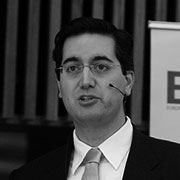Suzanne Biegel rounds up a few great men at the EVPA Madrid conference in December 2015 to discuss what the women effect means to them and how they apply a gender lens to their work and investment strategies.
Tim Radjy, Founder and Managing Partner, Alpha Mundi
SB: Tell me what regions you're working in, which sectors, and how do you see a gender lens in your fund? TR: We're invested in Latin America and East Africa. We've been investing for about six years and have invested about $20m in 15 companies.We began in microfinance [where] a gender lens is obviously key, because women are a better credit risk and very often better entrepreneurs as well.
From microfinance, we moved into sustainable agriculture in rural areas which is where you have the greatest poverty; usually women again bear the burden of a lot of the household tasks in addition to some of the agricultural work.
We have three levels of gender lens in our fund and in our investment activities. The first one is the client or beneficiary level; we always want to make sure that we have a very strong contingent of women as beneficiaries and right now we're at about 45%. We're also looking to include women in management of the companies we invest in; we've noticed that having women in senior management improves the governance and the performance overall of companies. Finally, if we can help it, we would like to invest in women entrepreneurs. Right now there are two women entrepreneurs who are in due diligence, the first in our portfolio (if you don't count microfinance institutions). We hope to do more in the future.
SB: From a governance standpoint in the fund itself, where are there women in the picture (management, leadership, investment committee)? TR: We have women at every level. We have a woman on the board of the fund that has three board members in all. We have a woman on the investment committee that has four members in all. And we have a woman in the senior management team. So we have tried to walk the talk and we're very happy about the results.
SB: And why is this personally important to you? TR: I grew up in a family that was run by women; i've always been very comfortable working with women and very inspired by their dedication. I think that just from a financial management, entrepreneurship and personal values standpoint it's important to promote the gender agenda.
Marcello Palazzi, Founder, BCorp Europe and Progressio Foundation
SB: What does the women effect mean to you? MP: The women effect means to include - I would say - the most important gender inside the economic transformation that we all want. I've worked in microfinance for many years and I know in microfinance how important women are. I see now in the US that 51% of new businesses are started by women - so that's fantastic. And the entrepreneurship by women is also bringing new values into society. We need them - if it had been Lehman Sisters instead of Lehman Brothers you wouldn't have had the disaster we had. So I believe in it completely.
It's a new objective to try to get investment funds for women, or focus on women business owners, and there is so much to do. It would be great if we could do more.
SB: And what is the relation with BCorp Europe around women effect investments? MP: BCorps by definition are 'best for the world'; they aim and strive to be the leading edge in everything they do, which of course covers inclusion or inclusiveness. This means getting more women on board, or more women within the actual BCorps, is definitely part of our strategy of moving the agenda forward.
SB: Why should men get involved in women effect investments? MP: My personal answer is I had a great grandmother, I have a great mother, a great wife and a great daughter - it's clear that we live in a society where women have at least half of the competence.
Siavash Habibi, European Consultant, Water.org
SB: How does a women effect come to life in your work? SH: At Water.org, 91% of our end customers - loan takers who, through microfinance, get access to water and sanitation - are women. They're the ones who make the decision about taking out the loans and investing in long term water and sanitation solutions, and they're also the group for which sanitation is the most sensitive.
Given that, it's important that we think first of all about the impact that we can create and have for women in these respective geographies and regions, and also how we can [help] poor women to make these decisions. We do this through training and microfinance partners, through NGOs, through Water.org to understand these issues and their respective considerations so we can make it better for [women] to make sustainable decisions regarding water and sanitation access.
SB: So how much has gone out in loans to women to get access to water and sanitation solutions? SH: To date, we have spent about $13-$14m in philanthropic funds to help our 50 or so microfinance partners develop water and sanitation loans. They have used this to mobilise additional funds from financial institutions in the sum of $140m that has gone out as microloans for water and sanitation. And again 91% [of that] is directed towards women customers. Now, we have a 99% repayment rate on these loans, so it's not only been appreciated, it's been respected. There are almost no defaults worldwide.
SB: So as a man thinking about positive effects on women, what would your message be to other men around the women effect? SH: It's a dichotomy I hope will not be an issue in the future. When I think about these questions, I hope the day will come when it's not a man/woman kind of issue. But [rather] human rights issues, or people in need issues - and until that day comes of course we need to highlight the ones that are in the most need of consideration. But again, in my mind at least today I don't think about it in those terms.
Giovanni Gerola, Director of Investments, Opes Impact Fund
SB: What does the women effect mean to you? GG: Women effect means that empowering women, especially in business, is critical to have a transformation of impact and the way business is done. I have personally experienced that for more than ten years now. I was working in fair trade before and then in microfinance, particularly in emerging countries, and now in impact investing. You can immediately see that when you have the opportunity to economically empower women - which is a big difference from general empowerment - you can see a big effect at a family and community level. And that is generating the transformation of impact we want to see.
SB: What are some examples of women effect investments that you think you've made through Opes? GG: We've made one excellent investment in a company made by wonderful women which is Afripads. Afripads is a company based in Uganda who manufacture and distribute reusable menstrual pads. Accessing professional solutions for managing menstrual hygiene is changing the life of a lot of women, especially young women. I'm sure you know that poor women in a big part of the developing world cannot access any solution, and providing them with something affordable is changing their lives and allows them not to skip school or work.
So from a product perspective Afripads is really wonderful but also as a company. They are employing more than 150 people, 90% of whom are women, and 80% of them are working in the manufacturing side in rural Uganda. And for people from rural villages, having the opportunity to access a permanent job, learn a job which is skilled, and feel that you're involved in a big corporation - it empowers them in terms of self esteem, they believe they can really make it and they believe they can grow as a person.
SB: For your fund, in your own management team, is there a women effect there? GG: There is. We're a very small team - we have a chairwoman and one of our team of three is a young woman. I don't know if that's a women effect - for sure it's important to have this diversity; there's a different way to tackle problems, solve issues. You can have some male sensitivity and female sensitivity and working together is important.
I want my daughter to experience a world and professional life which is made by balance and diversity.
Boris Alberda, Business Development Manager, Cordaid
SB: What does the women effect mean to you and to your work? BA: Working for an international NGO, I think women's equality is a no-brainer. It's so obvious that for us, it's among the top two priorities in our work. Indeed I think we do 50% of what we do with a gender focus. So it's always top of our minds, and in our strategies.
Cordaid works towards stability and peace. The relationship between peace, security and women is proven. It's not a debate, it's not a discussion we have to spend a lot of time on. It's a proven fact. For instance, the income of women spent in their communities in a beneficial way is 90%. With men it's 20-30%. It's so obvious if you look at these figures.
SB: How does this come to life in the work that you do every day? BA: My work really revolves around known financial services - how can we grow businesses towards investible businesses. So we've got specific targets for women issues businesses - not just women-led businesses but businesses that impact women issues and also related to the constraints of female entrepreneurs. We specifically aim to find these businesses, we select them and we grow them because it's part of our job, criteria and goals.
SB: Where do you work in the world? BA: Cordaid has 11 country offices, we work in 38 countries, all developing countries and mostly fragile countries. [When I say] fragile countries, think about Sierra Leone, fragile mainly because of the war and then Ebola. Think about Iraq, think about Afghanistan, Sudan, South Sudan. All the countries that need a lot of work.
SB: What does the world look like if we use a gender lens in our investing all the time? BA: I've got this dream about a world in peace. There's a big contribution equality has to peace. I think that everybody, especially this year, is very conscious of the fact that the world isn't in peace. If we're not even thinking about it how can we contribute to peace and how might the world look in future? I'll let other people draw the conclusions.
SB: And what would be your message to men about why they should be thinking about the women effect and be involved? BA: I think that men working in this sector - working with an impact lens - already know that this is one of the key things to work on. If they don't know they should look at the research and get trucking.











